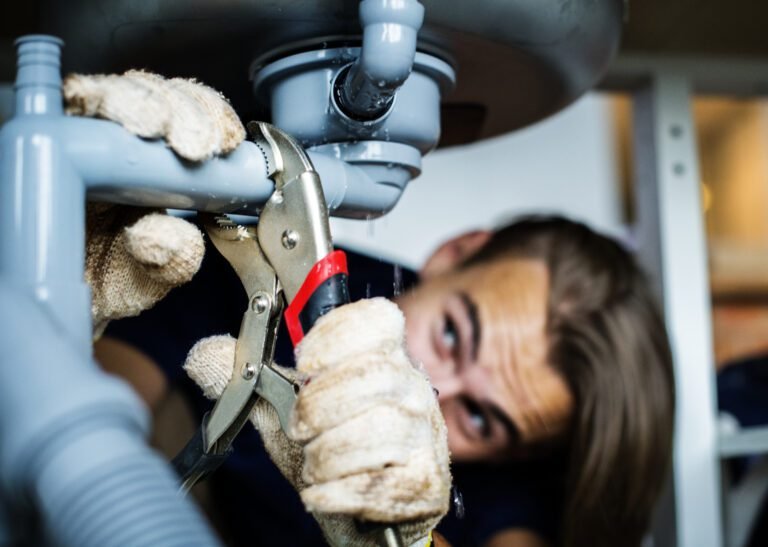If you’re the kind of homeowner who takes time and puts in the effort to ensure that your home appliances are in good working order and that your home is ready for even the most inclement weather, this post probably isn’t for you.
No, instead, this post is squarely aimed at those of you who believe that everything will be alright and that your water pipes can obviously withstand the contraction and expansion that comes from rapidly changing temperatures. And in many cases, this will be an overwhelming number of homeowners, because let’s face it, life being as it is, can be stressful and full of things that take up your time and drain your bank account, and who wants to spend their free time thinking about water systems and piping?
Well, unless you want to add another headache to your already headache-heavy head, you really ought to. Fortunately for you, it’s not actually that difficult to get your house in order, and hopefully, armed with the tips in this post, you understand the ins and outs of prepping your water system for each season.
Spring Maintenance: Preparing For Warmer Weather
Just as in Vivaldi’s The Four Seasons, we will begin with Spring.
Spring is the season that we all enjoy thanks to the introduction of warmer days and nights and the transition away from the frigid winter months. It should also herald a reduction in the need for emergency plumbing services, as long as you are adequately prepared.
So what does Spring water system preparation actually involve? In many ways, your primary tasks will be to take an audit of the current situation and try to find any sections or areas that might have been damaged during winter.
You might also want to perform a full flush of your system to remove any sediment that might have built up and could cause other parts of your system to clog down the line. A general spring maintenance checklist might look something like the following:
- Visual inspection of all visible pipes (and even those that are hidden away if you can reach them).
- Running water through your taps and faucets to clear any air pockets that can appear after turning the water off in certain pipes during winter.
- Replace anything that might be damaged, including hoses and washers.
- Schedule a professional plumbing inspection if needed to help uncover any hidden damage and for peace of mind.
Summer Maintenance: Handling Heat And High Usage
The summer months are typically defined by beautiful sunny weather and clear skies, often giving folk the false sense of security that they needn’t do all that much in terms of preparation and maintenance.
However, warmer temperatures can sometimes bring about things like hosepipe bans and the like, not to mention the point that you really ought to be making hay while the sun shines, so to speak.
In terms of what you might consider doing to ensure water remains running, your bills don’t spiral out of control, or even run the risk of municipal punishment for watering your garden during a drought, you have a few options up your sleeve.
| Tip | How it can help |
| Use a hose timer | A hose timer is a pretty affordable way to guarantee that you’re only using a certain amount of water during a set time. This is great to keep your bills as low as possible, and you adhere to the ban schedules in place. |
| Repair dripping faucets | Technically, this is a tip for any season, but it is a particularly good thing to do during the summer, as you will have nicer weather to perform preventive fixes. |
| Ensure sump pumps are operational | Summer can often bring torrential rains and summer storms, and depending on where you live, it could result in severe flooding. A functioning sump pump can mean the difference between a flooded basement and a dry one. |
| Install a rainwater harvesting solution | If you want to make sure your lawn and flowers look full of vitality, but are worried about overusing water during hotter months, a rainwater harvesting solution could be a great idea. |
Fall Maintenance: Transitioning To Cooler Months
Now we come into fall, which is undoubtedly one of the prettier months, but also brings with it a plethora of issues that can cause even the most proactive homeowner a headache.
In many ways, fall will be the time of year that you begin to “winterize” your home and prepare it for the deepest, darkest months that are about to descend upon you.
However, it does also involve some unique issues directly related to fall itself. These include keeping your guttering and rainfall systems free of debris to prevent any backups that might become a cause for concern.
But in practice, most of your prep will involve getting ready for winter, such as draining lesser-used pipes, testing the heating elements in your water heaters, and insulating any critical pipes to avoid them from freezing.
Winter Maintenance: Protecting Against Freezes
Winter tends to be the season that tends to elicit the most love/ hate relationships among people. Some enjoy the crisp mornings and gin-clear skies, while others in less clement locations loathe the constant snow, rain, and ice that make doing pretty much anything a cause of frustration.
While we can’t sit here and tell you that it’s all going to be fine and that you ought to enjoy the early morning freezing your fingers to the bones, scraping the ice off your windscreen before you begin an 8-hour day at a job you hate, we can provide a few pointers that should help to avoid issues with your water.
These include:
- Insulate any exposed pipes and keep all mission-critical appliances adequately warm (you can even keep specific cabinets open to allow warm air to circulate more efficiently).
- Know the location of your water shut-off valve so that if a pipe bursts in the night, you can lessen the adverse effects.
- Keep an eye out for any buildup of ice around your home (a good practice for everything, not just related to water).
- Be more mindful of what you pour down the sink, since materials behave differently during different seasons and could freeze more easily during colder weather, clogging your drains.
The amount of effort you need to put in to ensure your water systems are protected during different seasons isn’t much, considering the downsides of failing to take a proactive stance. By using the tips outlined here and getting the pros to perform a precautionary service, you will keep everything in good working order and be able to live normally without concern for whether the sun is shining or the windows are freezing.


































